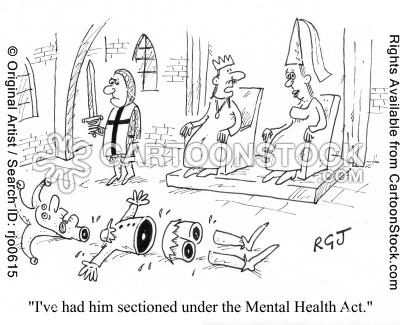
Last week, my support worker came round for the first time to help me make a start on sorting out the pickle I’ve got myself into. She was only here for an hour and she didn’t even do that much. She just sort of stood over me while I sorted stuff into piles and encouraged me when I got stuck. But it made all the difference. I was able to take two bin liners of clothes to the charity shop and then, afterwards, I went and got my specs fixed. I got more done in that one hour with the support worker than I had in the previous six months (or even longer) of trying (and failing) to manage on my own. A little support went a long way.
Before the support worker arrived, I’d done my usual thing: I’d walk into the room we’d agreed to start with, pick something up, walk around, feel confused, put it somewhere else, walk out, come back. Then start all over again. For two hours. In other words, I achieved nothing – other than making myself feel more useless and frustrated with my seeming inability to achieve anything.
It was very different with the support worker there. She helped me stay in one place, to keep focussed on one thing at a time, to keep going, to get something (however small) finished.
The support worker had only booked me in for an hour so, when the time was up, she said, “Next time I come round, we’ll take those bags to the charity shop”. I said, “Oh no, I’m coming out the front door with you. I’m taking the bags to the charity shop NOW.” I knew what would happen otherwise: those bags would be softly calling to me; I’d take a peak inside; I’d start to reconsider that little top there, oh and that one there. It’s all good stuff. So, when the support worker left, I left with her. She turned right to go to her next client and I, carrying the two bin bags of clothes, turned left to go to the charity shop. I handed them in and walked away, job done, two bags lighter.
And the interesting thing is that, even after the support worker left, the effect continued: after leaving the charity shop, I walked on to the opticians and got my glasses (which broke months ago) fixed. And fit only cost £3. I tried on a few frames (I need new glasses really) but they didn’t have anything that was quite right. But still, I had a go at choosing, which is more than I’ve been able to do all this year.
Of course, sorting out two bin bags of clothes and getting my glasses fixed are things I should be able to do myself. It’s just … I haven’t done so. I haven’t been able to do so. I don’t know why. It’s puzzling. I’m an intelligent and educated, capable and practical adult. I’m all grown up. But I just … can’t get stuff done.
And, as I stand still, of course the world continues to move. I’m sitting here now in partial darkness, with my desk lamp off, because the bulb went last week. As they do. Of course. And I haven’t managed to buy a replacement. Or even check the drawer in the kitchen to see if I already have one. And then there’s getting it together to change the bulb. Hence I end up sitting in half-darkness. And, as life moves on, all sorts of “bulbs” need “changing”. Otherwise, you end up sitting in ever increasing darkness as, one by one, they go out.
That’s what’s been happening to me and it means that, over time, rather than getting on top of things, I’ve managed to get myself into a pickle. I haven’t been able to manage all those little daily tasks that, tackled as each arises, keep life ticking along.
But at least now I have two fewer bags of clothing in the house. And, as a bonus, my glasses are fixed – so I can see where I’m going a bit better. There’s a metaphor in there somewhere.
I wish (like my relative who had a good experience of psychiatric inpatient and community care) I’d had support when I was first discharged. I think I’d have been in a very different place than I am now if I hadn’t been left to fend for myself for so long. Even though I’ve only been allocated an hour a week with the support worker, it’s making a difference already. A little goes a long way.
.

.
..
.
- My tweets on the topic, including responses from the lovely twitter people
- Dress for Success – “We help women on low incomes back into paid employment. We do this by firstly giving them a professional outfit and then one-to-one interview training. With the preparation and support our clients’ confidence levels elevate. We literally dress our clients for success. One in two of the women that we assist gets a job. Our clients before coming to us have been out-of-work for over a year. More than 40% of our clients are single parents. Some of the women come to us are ex-offenders, former drug addicts and they can live in homeless shelters and refuges.”
.
.




